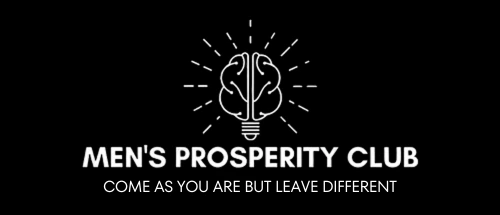Social anxiety affects nearly 1 in 8 men in the UK, based on recent NHS data. This makes it one of the most common mental health challenges you might face. Your daily life can take a big hit when you struggle with workplace presentations or find dating extra challenging.
Men tend to experience social anxiety differently from women. They often hide their symptoms because society expects them to act masculine. You might notice some familiar signs – racing thoughts before social events, staying away from networking opportunities, or feeling overwhelmed when you’re in groups.
We at Men’s Prosperity Club know these challenges well. Our complete guide will help you understand and tackle your social anxiety better. You’ll learn everything from spotting early warning signs to building lasting confidence with strategies that work in real-life situations.
Understanding Male Social Anxiety in Modern Britain
The original figures might surprise you – anxiety disorders affect 301 million people worldwide. These disorders rank as the most common mental health challenge globally. British men’s relationship with social anxiety tells a compelling story through numbers.
The latest numbers reveal that 29.9% of men reported high anxiety levels, yet only 36% of men seek professional help. You’re not alone if you’ve hesitated to ask for help – many men face the same struggles about therapy or counselling.
Current statistics from NHS and WHO
The World Health Organisation tells us that 4% of the global population experiences anxiety disorders. Social anxiety disorder has become one of Britain’s most common mental health challenges, with estimates of lifetime prevalence reaching up to 12%.
Impact of Masculine Stereotypes
Traditional masculine expectations create unique barriers for men dealing with social anxiety. The pressures are real:
- The push to “man up” during tough times (51% of young men report this)
- A belief that mental health struggles reduce masculinity (34% of men under 35 feel this way)
- Resistance to emotional expression (51% feel crying in front of others would make them feel less masculine)

Cultural expectations and pressures
These cultural pressures weigh heavily on modern British men. 37% of young men feel society expects them to be the breadwinner, while 29% feel forgotten or left behind by society’s expectations.
Pressures can easily become overwhelming, and traditional gender roles often discourage men from acknowledging anxiety or fear, making the journey harder
These expectations leave a lasting mark – men are three times less likely to seek psychological therapies than women. Many men turn to potentially harmful coping methods instead of asking for support.
Understanding these patterns helps you take the first step toward effectively tackling social anxiety. Society’s expectations might feel like a cage, but recognizing these pressures helps you challenge them and find better ways to cope.
Recognising Social Anxiety Symptoms
People start to recognize social anxiety by paying attention to their body’s signals. We’ve observed that many men find it hard to spot these warning signs, especially when they manifest differently in each situation.
Physical warning signs
Your body sends clear signals during moments of social anxiety. These physical symptoms can show up as:
- A pounding heartbeat that races
- Heavy sweating in social settings
- Trembling or shaking hands
- Dizziness or feeling lightheaded
- An upset stomach or nausea
Emotional indicators
The emotional effects of social anxiety go well beyond simple nervousness. You might worry intensely about everyday activities like meeting new people or starting conversations. Your mind can go blank during social interactions, which makes clear thinking difficult.
Many people feel an overwhelming fear of negative judgment from others. You might catch yourself analyzing every social interaction and dwelling on what you think went wrong.
Behavioural changes
Social anxiety can substantially change your daily routines and habits. You might notice yourself:
Staying away from situations that put you in the spotlight. This could mean saying no to work presentations or social gatherings. The anxiety might start building weeks before planned social events.
Your behaviour might change subtly—you might speak too softly or keep your body stiff and rigid. Eye contact might become a challenge, and you might feel an urgent need to escape social situations.
These changes disrupt many parts of your life, from career growth to personal connections. For instance, simple tasks like shopping or using public restrooms become challenging. These symptoms vary in strength—some people face them in specific situations, while others struggle in most social settings.
Note that having these symptoms doesn’t make you weak or less capable. They’re signs that your body and mind react to perceived social threats; with proper support, you can learn how to handle them.

Social Anxiety in Professional Settings
Social anxiety hits hard in professional settings. With 44% of male workers reporting workplace anxiety, it’s clear this issue significantly impacts productivity and well-being. Men often face societal pressures to appear confident and composed, making it even harder to acknowledge or address their struggles. This silence can lead to missed opportunities for collaboration, career progression, and personal growth, further compounding the problem. Recognizing the signs and fostering supportive environments can help break the cycle and empower individuals to thrive in their roles.
Meeting and presentation strategies
The thought of presenting might make your heart race—that’s perfectly normal. Good preparation makes all the difference. Recent data shows that 2.8 million working days were lost to work-related stress and anxiety. Having solid strategies is vital.
These proven techniques will help you handle presentations better:
- Show up 10-15 minutes early to get comfortable with the space
- Run through your presentation multiple times
- Keep your mind on the content instead of watching audience reactions
- Carry a small card with key points to help maintain focus
Workplace communication tips
Workplace communication has its own set of challenges. You’re not alone—nearly 50% of professionals call themselves shy.
Breaking interactions down into smaller, manageable chunks makes communication easier. When you tackle one piece at a time, anxiety drops. If speaking up in meetings seems too much, start small—prepare just one point to share.
Career advancement challenges
Social anxiety can block your path to career growth. Many professionals stay away from:
- Networking opportunities
- Applying for promotions
- Client presentations
- Team leadership roles
Despite that, you can handle these challenges. 84% of employees report feeling anxious about workplace interactions. The proper support and strategies help you push past these obstacles. Our team at mensprosperityclub.com has seen men build absolute confidence in professional settings through structured approaches.
These challenges will hold back your career until you face them head-on. A consistent approach to these strategies builds your confidence in your ability to succeed professionally.

Managing Dating and Relationship Anxiety
Dating can trigger intense anxiety in men who struggle with social anxiety. Research shows that relationship anxiety can show up as an overwhelming dread about losing oneself in a relationship.
First-date coping techniques
We know first dates can feel extra challenging, especially when you have anxiety. You can reduce anxiety by arriving 10 minutes early to your date location – this helps you get comfortable with the surroundings. Here are some proven strategies that work:
- Choose activity-based dates like bowling or cooking classes
- Select venues where you feel comfortable
- Plan conversation topics beforehand
- Keep your first meeting time-bounded
Building intimate connections
Deep connections need gradual exposure and trust. Many men feel relationship anxiety because they fear being unwanted or seen as less valuable romantic partners. You’ll find that real connections grow naturally when you:
- Share personal information gradually
- Focus on present moments rather than future worries
- Challenge negative self-talk about your worth
- Accept that some anxiety is customary and even exciting
Communication with partners
Good communication creates the foundation for healthy relationships. Studies show that asking questions and following up makes you more likeable to conversation partners.
Telling your partner the truth about your anxiety might help them understand it better. Many people create deeper connections by opening up about their nervousness. You might try saying something like, “I’m feeling a bit nervous.” This kind of openness often encourages your partner to share their own anxieties.
Note that relationship anxiety often comes from fear of rejection or abandonment. You create opportunities for meaningful connections by leaning into the relationship instead of pulling away. Research suggests that despite anxiety about merging with another person, pursuing intimacy brings the most joy and fulfilment in life.
The proper support and understanding will help you handle these challenges. Building trust takes time, and everyone deals with some dating anxiety – you’re not alone in this experience.
Practical Daily Coping Strategies
Daily routines can reduce social anxiety symptoms in men by a lot. Our team at mensprosperityclub.com has seen how structured daily practises help build resilience against anxiety.
Morning routine adjustments
The way you spend the rest of the day depends on what you do in the morning. Research shows that 75% of people with anxiety report decreased symptoms when they follow a structured morning routine. You can start with these steps:
- Wake up at the same time daily
- Drink water first thing
- Avoid phone for the first 30 minutes
- Take a short walk outside
- Prepare for the day ahead quietly
Stress management techniques
We learned that managing stress throughout the day helps prevent anxiety from building up. Studies indicate that regular deep breathing exercises can reduce anxiety symptoms by up to 40%. Here’s a proven way to manage daily stress:
- Practise box breathing (4 seconds inhale, hold, exhale, hold)
- Take mindful breaks every 2-3 hours
- Use grounding exercises when feeling overwhelmed
- Focus on present tasks rather than future worries
Lifestyle modifications
Consistent lifestyle changes create lasting effects on social anxiety. Research shows that regular exercise can improve anxiety symptoms as effectively as some medications. Poor sleep is directly linked to increased social avoidance.
These vital changes matter:
Sleep routine plays a huge role. A consistent bedtime and calming pre-sleep ritual will improve your emotional regulation the next day.
The food you eat matters, too. Studies show that reducing caffeine and sugar intake can decrease anxiety symptoms by up to 30%. Adding fermented foods and probiotics supports better gut health and reduces anxiety.
Social connections play a vital role, even when anxiety makes it challenging. Support groups have shown great success in reducing isolation. You can connect with others who understand your experiences through Walk and Talk at Men’s Prosperity Club.
Note that tracking your progress helps. 84% of men who maintain daily anxiety management routines report improved symptoms within 8 weeks. These changes might seem challenging initially, but small, manageable steps make the process easier.

Building Confidence Through Action
Action is the quickest way to build confidence against social anxiety. Our experience at mensprosperityclub.com shows that a well-laid-out approach helps men beat their fears one step at a time.
Gradual exposure exercises
We learned that exposure therapy works best by breaking down challenging situations into smaller, manageable steps. Your experience begins with activities that cause mild anxiety and builds toward more challenging scenarios.
Here’s a practical approach:
- Start with easier tasks like asking a stranger for directions
- Progress to joining small group activities
- Move on to speaking up in team meetings
- Advance to presenting in front of larger groups
Note that diving into overwhelming situations might backfire. With time, you’ll see how regular practise reduces anxiety in social settings.
Success tracking methods
Your chances of success improve substantially with progress tracking. The following proven tracking methods work best:
- Keep a daily anxiety journal
- Record your exposure exercises
- Note physical symptoms and their intensity
- Document successful interactions
- Track your comfort levels in different situations
Combined with regular practise, these tracking methods help you learn about patterns and progress in your experience. Many men discover that documenting their experiences gives them an explanation for future situations.
Celebrating small wins
Your progress deserves recognition, no matter how small. Research shows that celebrating achievements activates your brain’s reward system and boosts motivation and life satisfaction.
You should reward yourself when you:
- Successfully complete an exposure exercise
- Maintain eye contact during conversations
- Voice your opinion in a group setting
- Attend a social event you’d typically avoid
These celebrations reinforce positive behaviours and build lasting confidence. At mensprosperityclub.com, men who acknowledge their progress show greater improvement in managing their social anxiety.
Take your time and don’t rush through any of the steps. Studies show that gradual exposure, combined with proper tracking and celebration of achievements, substantially reduces social anxiety symptoms. Your journey toward confidence takes time, but each small step brings you closer to your goals.

Creating Your Support Network
A strong support network plays a vital role in managing social anxiety. Research shows that across Britain, men who seek support show significantly better outcomes in managing their social anxiety.
Finding the right therapist
Working with a mental health professional can change your life. Studies reveal that 75% of people experience improvements in their anxiety symptoms through therapy. You should think about these key factors when choosing a therapist:
- Experience with social anxiety treatment
- Specialization in men’s mental health
- Location and availability
- Cost and payment options
- Communication style that suits you
Getting started might feel challenging, but you can access NHS talking therapies for free. Our team at mensprosperityclub.com has seen how proper therapeutic support helps men break through social anxiety barriers.
Family and friend involvement
The first step to building a reliable support system is opening up to people you trust. Studies show that friends often have a more positive view of their relationship with socially anxious individuals than the individuals themselves.
Here’s how you can involve your loved ones:
- Choose a comfortable, private setting for conversations
- Explain your experiences clearly
- Share specific ways they can help
- Set clear boundaries about support needs
A “panic buddy” can make social situations more manageable. This person understands your challenges and stands ready to help when needed.
Online community engagement
Digital platforms have become great resources for men with social anxiety over the last several years. Online support groups show particular effectiveness for those with social anxiety, offering privacy and accessibility.
These platforms give you:
- 24/7 accessibility to support
- Anonymous participation options
- Connection with others facing similar challenges
- Practical coping strategies
Walk and talk group of Men’s Prosperity Club. Joining these communities helps reduce isolation and builds confidence. Charity signposting can help create a robust support system, and your network might include Charity Signposting.
- Professional help through therapists
- Personal connections with family and friends
- Online community members
- Support group participants
Support groups can be particularly beneficial because they offer unbiased feedback and shared experiences. These connections help you find others who face similar challenges and celebrate similar successes in managing social anxiety.
Note that 37% of young men feel society expects them to handle problems alone, but asking for help shows strength, not weakness. Building a detailed support network marks a significant step toward managing your social anxiety effectively.
Moving Forward with Confidence
Many men in Britain struggle with social anxiety. You’re not alone in this experience. The challenges can feel overwhelming – from workplace presentations to dating situations. However, research shows that proper support and consistent practise improve outcomes.
Your path to managing social anxiety begins when you acknowledge its presence and understand how it affects your life. It is important to note that asking for help shows strength rather than weakness. Simple strategies like morning routines and gradual exposure exercises have helped countless men build lasting confidence.
A strong support network is vital to your progress. Our Men’s Prosperity Club community, who share similar experiences, provides connections that create natural paths to healing. Additionally, the Walk and Talk sessions offer a unique way to engage, combining physical activity with meaningful conversation to help you feel more at ease and supported.
Managing social anxiety requires time and patience. Every little step helps you reach your goals. Your actions today—from breathing exercises to celebrating small wins—build the foundation for lasting change. Pick one strategy to start with. Your future self will appreciate you for taking the first step.




